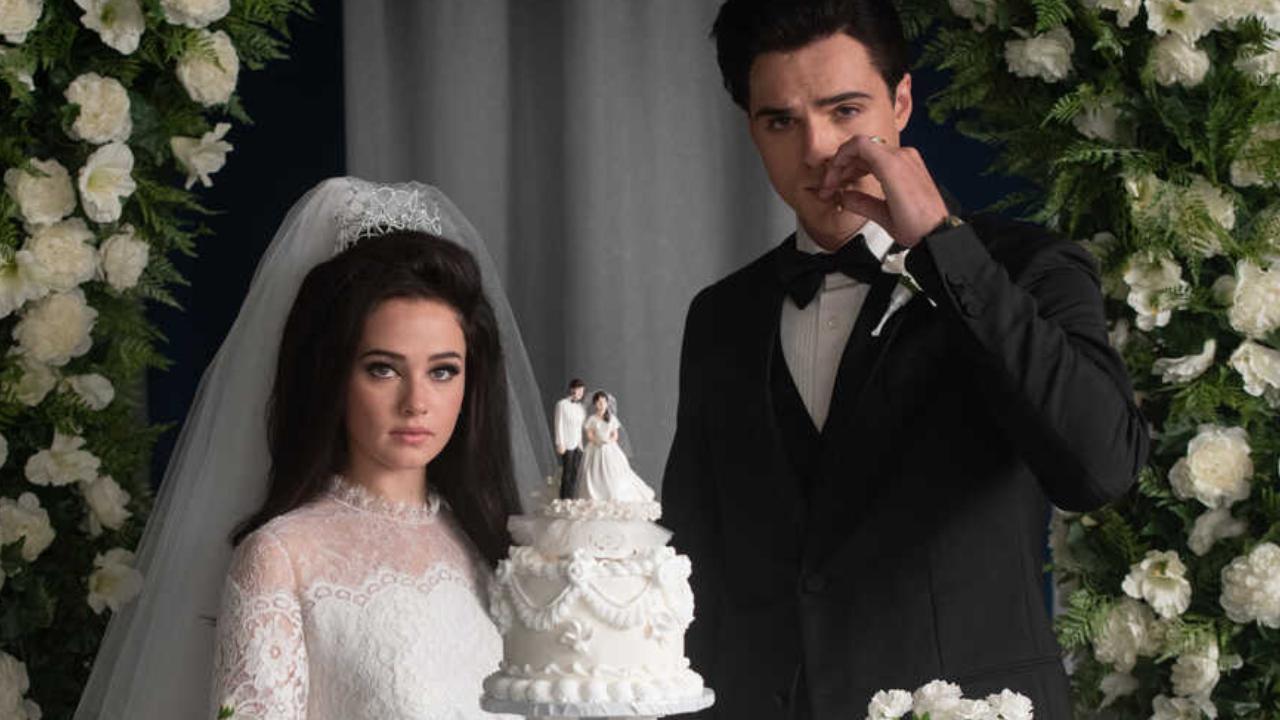What we did not see in Baz Luhrman’s ‘Elvis’ we get to see in Sofia Coppola’s ‘Priscilla.’ Coppola’s film is basically the other side of the coin, giving us a perspective that tries to complete the picture regarding the power couple who made it to the headlines several decades ago

'Priscilla' movie review
Film: Priscilla
Cast: Cailee Spaeny, Jacob Elordi, Dagmara Dominczyk, Emily Mitchell, Jorja Cadence, Rodrigo Fernandez-Stoll, Tim Post, Luke Humphrey
Director: Sofia Coppola
Rating: 3/5
Runtime: 110 min
ADVERTISEMENT
What we did not see in Baz Luhrman’s ‘Elvis’ we get to see in Sofia Coppola’s ‘Priscilla.’ Coppola’s film is basically the other side of the coin, giving us a perspective that tries to complete the picture regarding the power couple who made it to the headlines several decades ago. The screenplay by Coppola and Sandra Harmon is an adaptation of Priscilla Presley’s 1985 memoir, “Elvis and Me.” Coppola’s movie shadows 14-year-old Priscilla Beaulieu’s life from 1959, all the way to her becoming Elvis’s bride in 1967 and getting to the point of their divorce in 1973.
Coppola’s films make do without much plot and her narrative focuses on getting the viewer to imbibe the milieu, lifestyle and behavior patterns of her characters. And her approach is both intuitive and subtle enough to leave the viewer room for arriving at their own conclusions. So there’s not much drama to be had.
In 1959 Wiesbaden, Germany, fourteen-year-old Priscilla Beaulieu (Cailee Spaeny), finds herself invited to a gathering at the home of Elvis Presley (Jacob Elordi), currently serving on military duty. Her father, Captain Beaulieu (Ari Cohen) had only recently been relocated there, with Priscilla’s mother (Dagmara Dominczyk) and young brother in tow. From therein begins this story.
The narrative never takes a truly deep look at all the little details in the couple’s lives. We see the couple cuddling up to each other but the sexual part is left entirely to the audience’ imagination. The narrative feels insular, relying majorly on mood and atmosphere instead of drama. Both Spaeny and Elordi, largely anonymous young actors, come without baggage and fit in quite beautifully in the scheme of things. They represent faulty humans and the lack of flash and dash reduces them to a regular couple.
The King of Rock ’N Roll isn’t the star here. It’s his wife who hogs the screen and has us empathising with her experiences. Coppola uses casting choices and positioning to lend credence to the vast and growing valley of differences between the couple.
When Priscilla first enters Graceland, she looks all-too-young and gauche.The height difference between the couple makes Priscilla look like a little girl trying too hard to look grown-up. Elvis was a decade older than Priscilla and Coppola emphasises her telling through those differences. Elvis is portrayed as a celebrity who makes his young wife into an ornament/possession to be viewed at his pleasure. Under the guise of protectionism, he models her into an idealized Christian girl, a version of the modern Southern belle who his deceased mother would have been proud of. Priscilla was 14 when they first met in Germany, and 17 when she moves into Graceland. Elvis’ first gift to her is a pooch whom she coddles and treats like a little princess. The parallels are emphatic and illuminating. Elvis desires Priscilla to be available whenever he wishes and forbids her from taking a part-time job…and Priscilla is almost always primped up to suit Elvis’ specifications.
Once She is at Graceland, Priscilla is always seen in the company of Elvis’ posse. The movie only spans the years they were together. It does seem like we are getting a very premeditated cauterised version of Priscilla’s reality. Priscilla seems isolated and controlled by Elvis. And Elvis seems more like a shadow looming large over her life. Since this is not a film about Elvis’ career we hear just one or two of his songs. Coppola uses pop music to accentuate the subtleties in the understated drama. Initially we hear The Ramones playing and towards the end it’s Dolly Parton’s ‘I Will always love you’ serenading their divorce.
Spaeny captures Priscilla’s transformation over the years - the journey from an innocent young fan to a frustrated woman trapped in an isolating relationship, quite effectively. It’s the innocence Cailee Spaeny conveys, that makes you wonder at Elvis’ character traits which would be frowned upon in today’s times.
There isn’t much chemistry between Elvis and Priscilla in this film. We don’t get to see any unique or even a deeper perspective of this widely known story either. This film’s understated, slightly gloomy vibe helps in establishing Priscilla’s state of mind though. The narrative in fact feels like a quiet condemnation of The King’s many peculiarities. Collaborating with cinematographer Philipe Le Sourd, editor Sarah Flack and having Tamara Deverell’s Production Design and Stacey Battat’s costuming to aid her in this telling, Coppola puts out a beautifully sombre and still aesthetic that suits the overall theme of non-verbalised abuse quite befittingly.
 Subscribe today by clicking the link and stay updated with the latest news!" Click here!
Subscribe today by clicking the link and stay updated with the latest news!" Click here!







